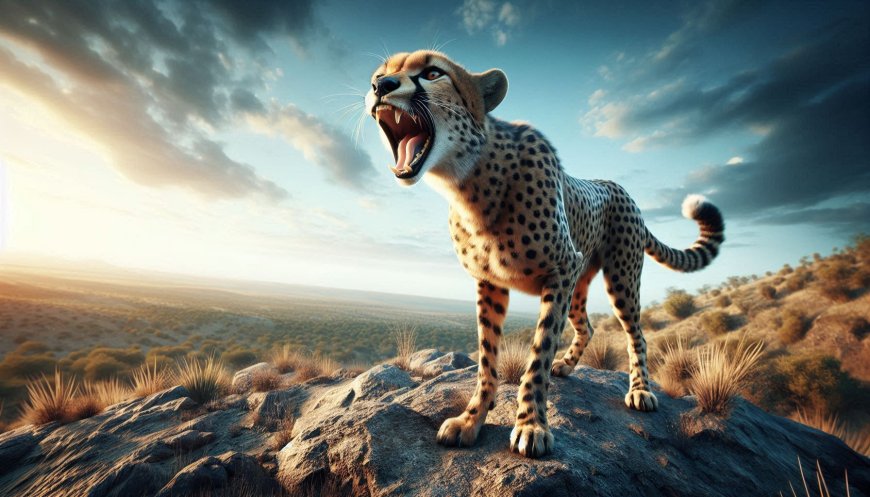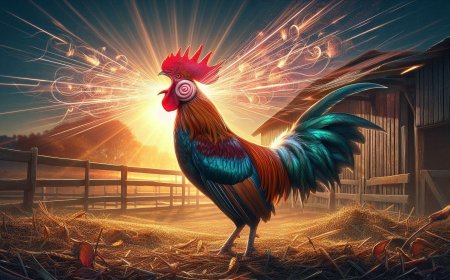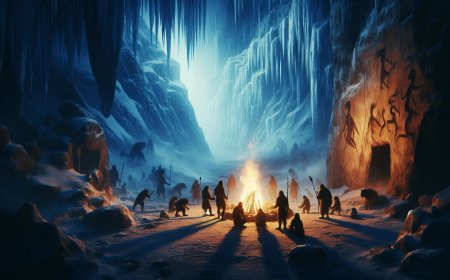Cheetahs Meow: The Unexpected Voice of the Fastest Land Animal
Discover the surprising vocalization of cheetahs as they emit a gentle meow instead of a roar, defying expectations for the world's fastest land animal. Explore the unique sound and behavior of these majestic big cats.

In the world of big cats, the cheetah stands out—not just for its breathtaking speed but also for its surprisingly soft voice. Unlike lions and tigers, which roar to assert their dominance, cheetahs communicate in a way that may sound more familiar to cat lovers: they meow, chirp, and purr. This quirky trait, rooted in their unique anatomy, reveals a fascinating side of these elegant predators.
Why Cheetahs Meow
The secret behind the cheetah’s vocalizations lies in its anatomy. Unlike other big cats that possess a special two-piece hyoid bone allowing them to produce those thunderous roars, cheetahs have a vocal structure resembling that of domestic cats. This means they can create a variety of high-pitched sounds, including the meow that echoes through the savanna.
For cheetahs, communication is essential, especially given their often solitary lifestyle. Mothers chirp to call their cubs, siblings purr during moments of grooming, and meows or yowls can signal distress. Each vocalization plays a crucial role in their social interactions and survival.
The Cheetah’s Conversation: Beyond the Meow
Cheetahs boast a rich tapestry of sounds that serve distinct purposes in their daily lives. From maternal calls to alarm signals, their vocal repertoire showcases their adaptability and social needs.
Maternal Melodies
The bond between a cheetah mother and her cubs is deepened through sound. When a mother chirps, her high-pitched calls resonate through the grasslands, ensuring that her cubs, who are vulnerable to predators, can hear her call even from a distance. It’s a melody of survival, a reminder that safety often lies in the strength of familial bonds.
Alarming Alerts
When danger lurks nearby, the atmosphere shifts dramatically. Cheetahs unleash a series of high-pitched barks, alerting others to potential threats. These alarm calls break their otherwise silent demeanor while hunting, showcasing the delicate balance between stealth and awareness in the wild.
Contentment Cues
In moments of peace, cheetahs revert to softer sounds. Their purrs echo the contentment found in social grooming sessions, strengthening their bonds. As they groom each other after a successful hunt, these soft vibrations create an atmosphere of trust and companionship—an essential aspect of their social structure.
The Silent Hunt
While on the prowl, cheetahs are masters of silence. Their speed and stealth render vocal coordination unnecessary; they rely on their acute senses and instincts. However, after a chase—whether triumphant or not—vocalizations return. Moans may escape their lips, a form of stress relief or a signal to regroup.
Survival Strategies
Unlike roaring big cats, which can announce their presence from miles away, cheetahs have evolved a communication system tailored for short-distance interactions. This ensures their stealth remains intact, allowing them to surprise prey with their astonishing speed.
Conservation Through Communication
Understanding cheetah vocalizations holds significant implications for conservation efforts. By interpreting stress calls, researchers can identify environmental disturbances affecting cheetah populations. This knowledge empowers conservationists to implement effective management strategies, safeguarding these magnificent animals and their habitats.
A Unique Voice in the Animal Kingdom
The fact that cheetahs meow is a delightful reminder of their uniqueness within the big cat family. It sets them apart, aligning them more closely with the domestic cats that grace our homes. In a world where speed reigns supreme, these graceful felines remind us that there is beauty in diversity—even in the way we communicate. So, the next time you hear a cheetah’s call echoing across the plains, remember that this swift creature has a voice as distinctive as its extraordinary speed.
What's Your Reaction?









































































































